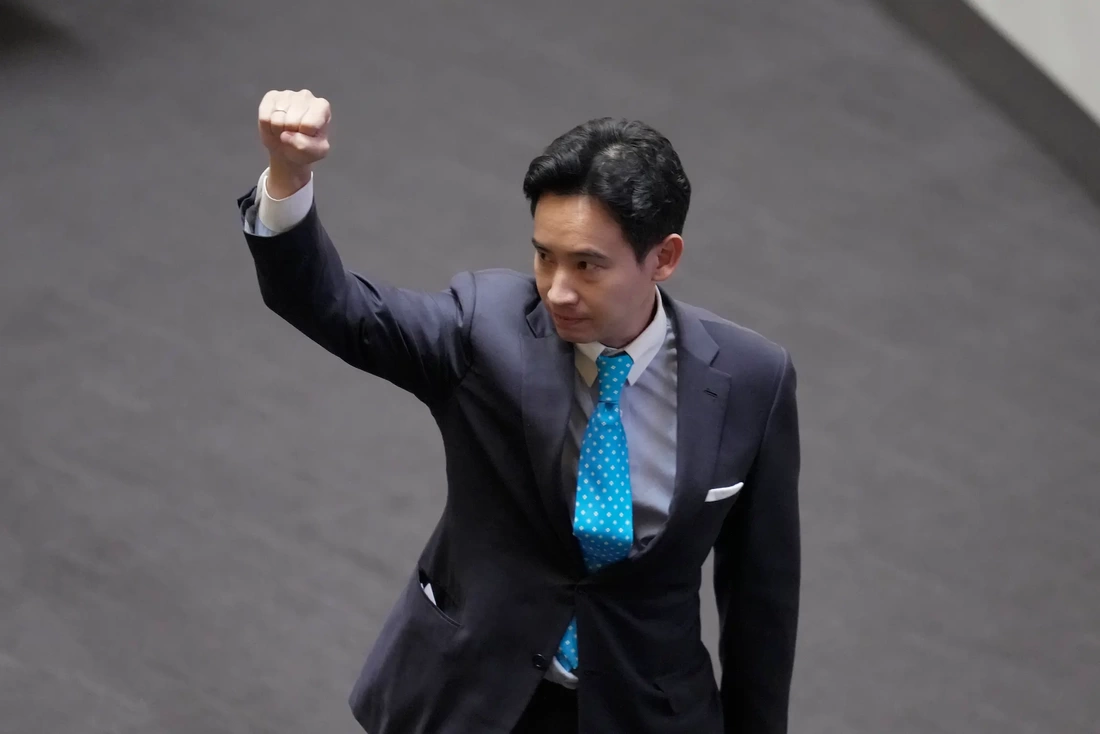|
|
|
|
The Thai Constitutional Court's recent decision to suspend the frontrunner for prime minister, based on politically motivated charges, is a significant blow to democracy in Thailand, according to a statement from Human Rights Watch today. The reformist Move Forward Party, led by Pita Limjaroenrat, 42, had secured the highest number of parliamentary seats (151) in the May 14, 2023 election, giving them the mandate to lead efforts in forming a new government.
On July 19, the Constitutional Court accepted the Election Commission of Thailand's allegations against Pita, claiming that he violated electoral rules and was ineligible to run for office due to his shares in the iTV media company. However, it should be noted that the company had not been broadcasting for 15 years and was delisted from the Stock Exchange of Thailand in 2014.
Human Rights Watch's Asia director, Elaine Pearson, criticized the military-backed conservative elites for manipulating the constitutional and legal frameworks established after the 2014 coup to prevent a popularly elected political leader from taking power. Pearson expressed concern about the direction Thailand is heading, fearing that it could severely harm democratic principles.
The suspension of Pita from parliament is just one of the attacks against him and the Move Forward Party. Military junta-appointed senators, along with the United Thai Nation Party and its allies, blocked Pita's nomination as prime minister, arguing that his party's proposal to reform the draconian lese majeste law amounts to an attempt to overthrow the monarchy.
Despite needing 375 votes to secure the position of prime minister, Pita only received 324 votes in his favor, and his nomination was defeated on July 14. In a subsequent joint sitting on July 19, 394 out of 715 MPs and senators present voted against renominating Pita for the position, further complicating his chances.
On July 19, the Constitutional Court accepted the Election Commission of Thailand's allegations against Pita, claiming that he violated electoral rules and was ineligible to run for office due to his shares in the iTV media company. However, it should be noted that the company had not been broadcasting for 15 years and was delisted from the Stock Exchange of Thailand in 2014.
Human Rights Watch's Asia director, Elaine Pearson, criticized the military-backed conservative elites for manipulating the constitutional and legal frameworks established after the 2014 coup to prevent a popularly elected political leader from taking power. Pearson expressed concern about the direction Thailand is heading, fearing that it could severely harm democratic principles.
The suspension of Pita from parliament is just one of the attacks against him and the Move Forward Party. Military junta-appointed senators, along with the United Thai Nation Party and its allies, blocked Pita's nomination as prime minister, arguing that his party's proposal to reform the draconian lese majeste law amounts to an attempt to overthrow the monarchy.
Despite needing 375 votes to secure the position of prime minister, Pita only received 324 votes in his favor, and his nomination was defeated on July 14. In a subsequent joint sitting on July 19, 394 out of 715 MPs and senators present voted against renominating Pita for the position, further complicating his chances.
Moreover, the Constitutional Court is also set to hear a case against the Move Forward Party regarding their stance on reforming the lese majeste law, potentially leading to criminal prosecution. The party leaders could face severe penalties, including the death sentence or life imprisonment. Furthermore, the party itself might be dissolved, and its executives barred from politics for life.
Human Rights Watch highlights Article 25 of the International Covenant on Civil and Political Rights, which Thailand has ratified, underscoring the right of citizens to vote and be elected freely in genuine periodic elections that reflect the will of the people.
The response from foreign governments to this threat to democracy in Thailand has been criticized. The United States, the European Union, Australia, Canada, New Zealand, and other countries have not adequately raised their concerns about the situation.
Pearson urged Thailand's international allies to denounce the dissolution of the Move Forward Party and the banishment of its leaders from politics, as it would effectively disregard the votes of millions of Thai citizens and undermine democratic rights for all. She called for strong condemnation of this setback to the country's anticipated return to democratic governance.
Human Rights Watch highlights Article 25 of the International Covenant on Civil and Political Rights, which Thailand has ratified, underscoring the right of citizens to vote and be elected freely in genuine periodic elections that reflect the will of the people.
The response from foreign governments to this threat to democracy in Thailand has been criticized. The United States, the European Union, Australia, Canada, New Zealand, and other countries have not adequately raised their concerns about the situation.
Pearson urged Thailand's international allies to denounce the dissolution of the Move Forward Party and the banishment of its leaders from politics, as it would effectively disregard the votes of millions of Thai citizens and undermine democratic rights for all. She called for strong condemnation of this setback to the country's anticipated return to democratic governance.






